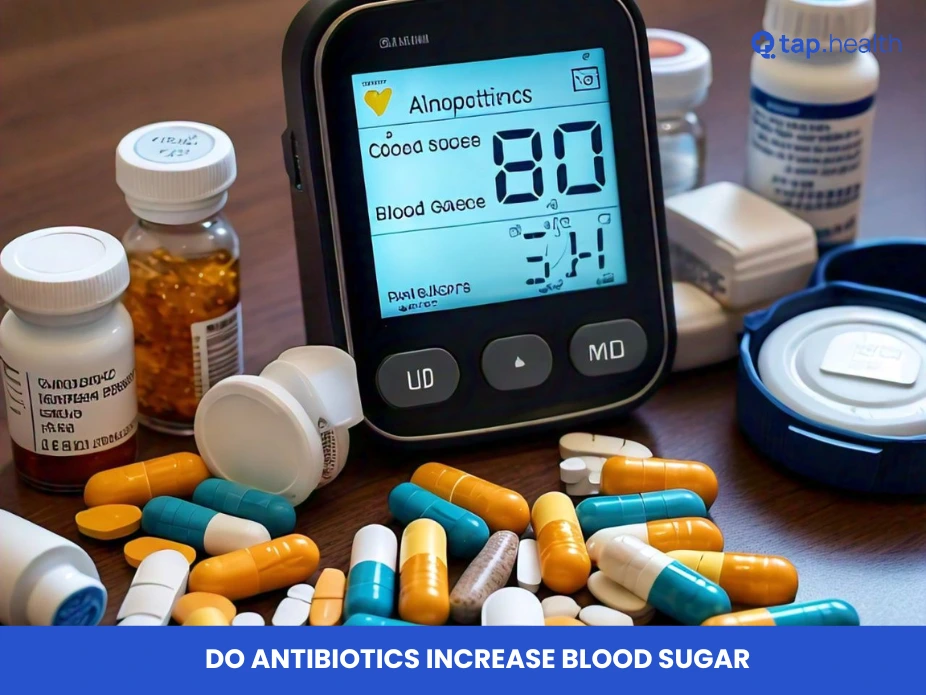Ulcerative colitis (UC) is a chronic condition that affects the large intestine (colon). It causes inflammation, irritation, and sores (ulcers) on the inner lining of the colon. This leads to symptoms like stomach pain, diarrhea, weight loss, and fatigue. Though there is no cure for UC, treatment can help manage the symptoms and allow people with the disease to live a normal, active life. But the big question is: What is the best medicine for ulcerative colitis?
In this blog, we will explore the most common and effective treatments available for ulcerative colitis, including medications that help reduce inflammation, manage flare-ups, and maintain remission. We will also highlight insights from experts and provide real-life scenarios to better understand how different medications work.
Understanding Ulcerative Colitis
Before diving into the best medicines, it’s important to understand what ulcerative colitis is. UC is a type of inflammatory bowel disease (IBD) that causes the immune system to mistakenly attack the digestive tract, leading to inflammation and ulcers in the colon. The disease often comes in waves, with flare-ups followed by periods of remission. During flare-ups, people may experience:
- Chronic diarrhea
- Abdominal pain and cramping
- Bloody stools or rectal bleeding
- Unexplained weight loss
- Fatigue
Treating UC aims to reduce inflammation, control flare-ups, and maintain remission.
Best Medicines for Ulcerative Colitis
There isn’t a single treatment that works for everyone. The best medicine for ulcerative colitis depends on the severity of the condition, the person’s response to treatment, and other factors like age and overall health. Here’s a breakdown of the most commonly used medications for managing ulcerative colitis.
1. Aminosalicylates (5-ASA)
Aminosalicylates, also known as 5-ASA, are one of the first-line treatments for mild to moderate ulcerative colitis. These drugs help reduce inflammation directly in the colon.
How It Works:
Aminosalicylates work by releasing a substance that reduces inflammation in the colon. They can be taken orally, or in the form of enemas or suppositories to target the affected area directly.
Common Drugs:
- Sulfasalazine (Azulfidine)
- Mesalamine (Asacol, Pentasa)
- Balsalazide (Colazal)
Effectiveness:
Aminosalicylates are very effective for controlling inflammation and maintaining remission. They are often the first choice for people with mild or moderate UC.
Side Effects:
Side effects can include headaches, nausea, and abdominal discomfort, but they are generally mild and go away after a while.
2. Corticosteroids (Steroids)
Corticosteroids are used for managing severe flare-ups of ulcerative colitis. They are effective in rapidly reducing inflammation but are not meant for long-term use due to their side effects.
How It Works:
Steroids suppress the immune system and reduce inflammation throughout the body. They are usually given in the form of pills or enemas, and sometimes in intravenous (IV) form during a hospital stay.
Common Drugs:
- Prednisone
- Hydrocortisone (Cortifoam, Anusol-HC)
- Budesonide (Entocort)
Effectiveness:
Steroids are highly effective for controlling flare-ups and bringing the disease under control quickly. However, they do not treat the underlying cause of UC and are typically used only for short periods.
Side Effects:
Long-term use can lead to serious side effects like weight gain, high blood pressure, osteoporosis, and an increased risk of infections.
3. Immunomodulators
Immunomodulators work by suppressing the immune system to prevent it from attacking the colon. They are used when other treatments are ineffective or for people who do not respond to steroids.
How It Works:
These drugs modify the immune system’s response, reducing the level of inflammation and preventing flare-ups.
Common Drugs:
- Azathioprine (Imuran)
- 6-Mercaptopurine (Purinethol)
- Methotrexate
Effectiveness:
Immunomodulators are used for people with moderate to severe UC. They help control symptoms and maintain remission but may take several months to work.
Side Effects:
Side effects can include nausea, liver damage, and an increased risk of infections. Regular blood tests are required to monitor these risks.
4. Biologics (Biologic Therapies)
Biologics are a newer class of medications that target specific molecules involved in the immune response. They are often used for people with moderate to severe ulcerative colitis who do not respond to other treatments.
How It Works:
Biologics block the activity of proteins that cause inflammation in the colon, effectively controlling the disease’s progression. They are usually given through injections or intravenous (IV) infusions.
Common Drugs:
- Infliximab (Remicade)
- Adalimumab (Humira)
- Vedolizumab (Entyvio)
- Golimumab (Simponi)
Effectiveness:
Biologics are very effective at reducing inflammation and controlling symptoms in moderate to severe cases of ulcerative colitis. They can also help people maintain long-term remission.
Side Effects:
The side effects of biologics can include headaches, nausea, and an increased risk of infections. Serious side effects may include a risk of certain cancers or reactions to the infusion or injection.
5. Janus Kinase (JAK) Inhibitors
Janus Kinase inhibitors are another new class of medications that help reduce inflammation by blocking specific enzymes involved in the immune response. They are typically prescribed for moderate to severe UC.
How It Works:
JAK inhibitors are oral medications that target the enzymes responsible for inflammation. They are often used when other treatments do not work.
Common Drugs:
- Tofacitinib (Xeljanz)
- Upadacitinib (Rinvoq)
Effectiveness:
JAK inhibitors can be effective in treating moderate to severe ulcerative colitis, especially in people who haven’t responded to other treatments.
Side Effects:
Side effects can include an increased risk of infections, blood clots, and liver problems. Regular monitoring is necessary to manage these risks.
Also read this – what causes inflammatory bowel disease
Real-Life Scenarios
Let’s consider how these medications work in real life, focusing on two examples:
1. Anjali’s Story
Anjali, a 32-year-old woman from Bangalore, was diagnosed with moderate ulcerative colitis. She started on Mesalamine (Asacol) and saw significant improvement in her symptoms within a few weeks. With her symptoms under control, her doctor advised her to continue with mesalamine to maintain remission and avoid flare-ups.
2. Ravi’s Journey
Ravi, a 45-year-old man from Mumbai, struggled with severe flare-ups of ulcerative colitis that didn’t respond to mesalamine or corticosteroids. After multiple flare-ups, he was prescribed Infliximab (Remicade). Within a few months, Ravi’s symptoms improved, and he entered remission. Biologics helped control his disease and provided long-term relief.
Expert Contributions
According to Dr. Rahul Desai, a gastroenterologist from New Delhi, “In patients with moderate to severe ulcerative colitis, biologic therapies like Infliximab and Vedolizumab have shown remarkable results. They not only help in managing flare-ups but also improve the quality of life significantly.”
You can read more about his recommendations and other expert opinions on India’s Ministry of Health and Family Welfare website.
Recommendations Grounded in Proven Research and Facts
Numerous studies have highlighted the benefits of biologics and immunomodulators in the treatment of ulcerative colitis. Research published in the Indian Journal of Gastroenterology suggests that Vedolizumab and Adalimumab have been proven to reduce flare-ups and maintain remission in people with moderate to severe UC.
Factual and Reliable Information
The medications mentioned above are supported by extensive clinical trials and research. However, the best treatment for ulcerative colitis is highly individualized. It is essential to consult a healthcare provider to determine the most appropriate treatment plan based on your specific needs.
Frequently Asked Questions (FAQs) on What is the Best Medicine for Ulcerative Colitis?
1. What is the first-line treatment for ulcerative colitis?
The first-line treatment is usually Aminosalicylates (5-ASA), which help reduce inflammation in the colon.
2. Can biologics cure ulcerative colitis?
No, biologics cannot cure ulcerative colitis, but they can help manage symptoms and maintain remission in people with moderate to severe disease.
3. Are there any natural treatments for ulcerative colitis?
While diet changes and probiotics may help, medications are essential for managing the condition effectively. Always consult your doctor before trying any alternative treatments.
4. How long does it take for medications to work in ulcerative colitis?
It depends on the type of medication. Aminosalicylates can work within a few weeks, while immunomodulators and biologics may take several months to show full effects.
5. Can ulcerative colitis go away with medication?
While medications can control symptoms and reduce flare-ups, ulcerative colitis is a chronic condition, meaning it requires ongoing treatment.
6. Are steroids safe for long-term use in ulcerative colitis?
No, steroids should only be used for short periods due to their potential for serious side effects like weight gain, osteoporosis, and increased infection risk.
Conclusion
Managing ulcerative colitis requires a personalized treatment approach. The best medicine for you will depend on the severity of your condition, your response to various treatments, and other factors. From Aminosalicylates for mild cases to Biologics for more severe conditions, there are various options to help reduce symptoms and maintain remission. Consulting with a healthcare provider is the best way to determine the most effective treatment plan tailored to your needs.


